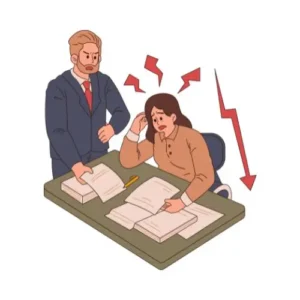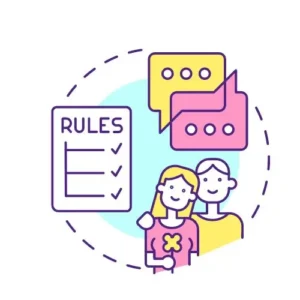Introduction
A successful romantic relationship takes effort, empathy, and understanding from both partners. Even wonderful relationships can hit rough patches or fall into ruts over time. When conflicts emerge or things feel stale, be proactive and get advice on relationship problems so you can resolve issues before they spiral.
| Statistic | Figure |
|---|---|
| Percentage of adults in romantic relationships | 73% |
| Percentage of marriages that end in divorce | 43% |
| Percentage who say communication is an important factor for relationship success | 90% |
Lack of Communication
One of the biggest relationship killers is poor communication. Partners may stop sharing feelings, needs, hopes, frustrations, etc. This can leave the other person feeling shut out. Silences often get filled with assumptions and misunderstandings.
Advice: Schedule weekly or bi-weekly times to talk and check in. Share vulnerability and be fully present. Ask questions, reflect on key points, and summarize to ensure understanding.
Loss of Intimacy
Physical intimacy and sex may decline when partners struggle to make time for each other or have conflicts unresolved. Lack of emotional intimacy can also reduce physical closeness. Partners lose their sense of true connection.
Advice: Intimacy needs to be actively nurtured, not taken for granted. Plan regular date nights that incorporate thoughtful gestures. Explore new experiences together. Ask questions that go beyond the surface. Compliment each other. Flirt!
Financial Pressures

Money troubles frequently impact relationships – the #1 cause of divorce. Unemployment, debt, supporting family, etc, can create enormous stress. Partners may argue over spending or make unfair financial assumptions.
Advice: Communicate clearly about finances. Budget together and agree on financial priorities. Understand each other’s money mindsets. Work as a team by setting shared money goals.
Lack of Quality Time
Chummy work schedules, family duties, health complications, or other responsibilities can give couples very little time to strengthen their bond. The partners may start feeling neglected. Opportunities for bonding are lost.
Advice: Guard your time together. Set aside at least one night a week for a date. Put away your phones; just be with each other. Do new things together. Go places from your favorite memories/places from when you were dating.
Unresolved Past Issues

If never openly addressed, old wounds or betrayals can persist. Grudges impact intimacy and trust. Partners may fall back into old arguments or behaviors—resentment and disappointment mount.
Advice: For healing to happen properly, the issues need to be aired at some point. Counseling may be needed for that. Set rules so the discussion stays calm and thoughtful—not accusatory. Describe impacts honestly but lovingly. Apologize genuinely.
However, the most important thing is to identify problems early before they blow up or resentment sets in. So, if you feel your relationship is losing its closeness, intimacy, or connectedness, seek advice for relationship problems from a therapist or your trusted resources. With mutual understanding and effort, nearly all relationships can be bettered. The key is to be proactive and remain committed even during rocky periods.
Jealousy & Trust Issues
Jealousy creeps in when there is no trust established due to past dishonesty, control issues, or insecure attachment styles. The blame game— constantly accusing and not being open-minded to discussion—only makes things worse.
Tip: Over time, build trust by living transparently, communicating honestly, and respecting personal space. Validate feelings without assumptions. Give space if needed. Stay focused on the strong points of the relationship rather than digging up the past. Attend counseling to resolve deep-seated jealousy or trust issues.
Difference in Priorities & Expectations

Different priorities on careers, family, social circle, etc., and expectations from the partner add up to unreleased resentment over time.
Advice: Freely discuss each other’s top 3 priorities. Adjust the expectations accordingly as priorities change over time—a compromise to support each other’s goals and dreams within reason. Focus on shared priorities like commitment to the relationship. Counseling helps skillfully manage expectations.
Lack of Affection
When physical or emotional affection decreases to near nonexistent without efforts to reconnect, it fosters insecurity, jealousy, and disconnection in the relationship.
Tip: Schedule quality time spent focusing only on each other without distractions. Hold hands, hug, and kiss daily to build emotional bonds with non-sexual affection and intimacy. Small, spontaneous acts of kindness and gratitude can reignite lost feelings. Counseling helps to identify and address underlying causes for affection dropping off.
Conclusion
In summary, addressing relationship problems requires ample communication, compromising where applicable, willingness to change unhealthy behaviors, focusing on shared goals, and expressing affection sincerely and professional guidance if issues persist. Working through difficulties together strengthens emotional intimacy and commitment between partners. Most couples can overcome long-standing problems with effort and patience to experience fulfilling, thriving relationships.


Hi, this is a comment.
To get started with moderating, editing, and deleting comments, please visit the Comments screen in the dashboard.
Commenter avatars come from Gravatar.